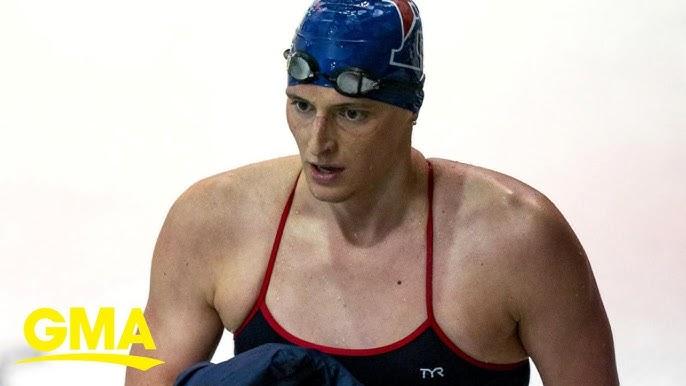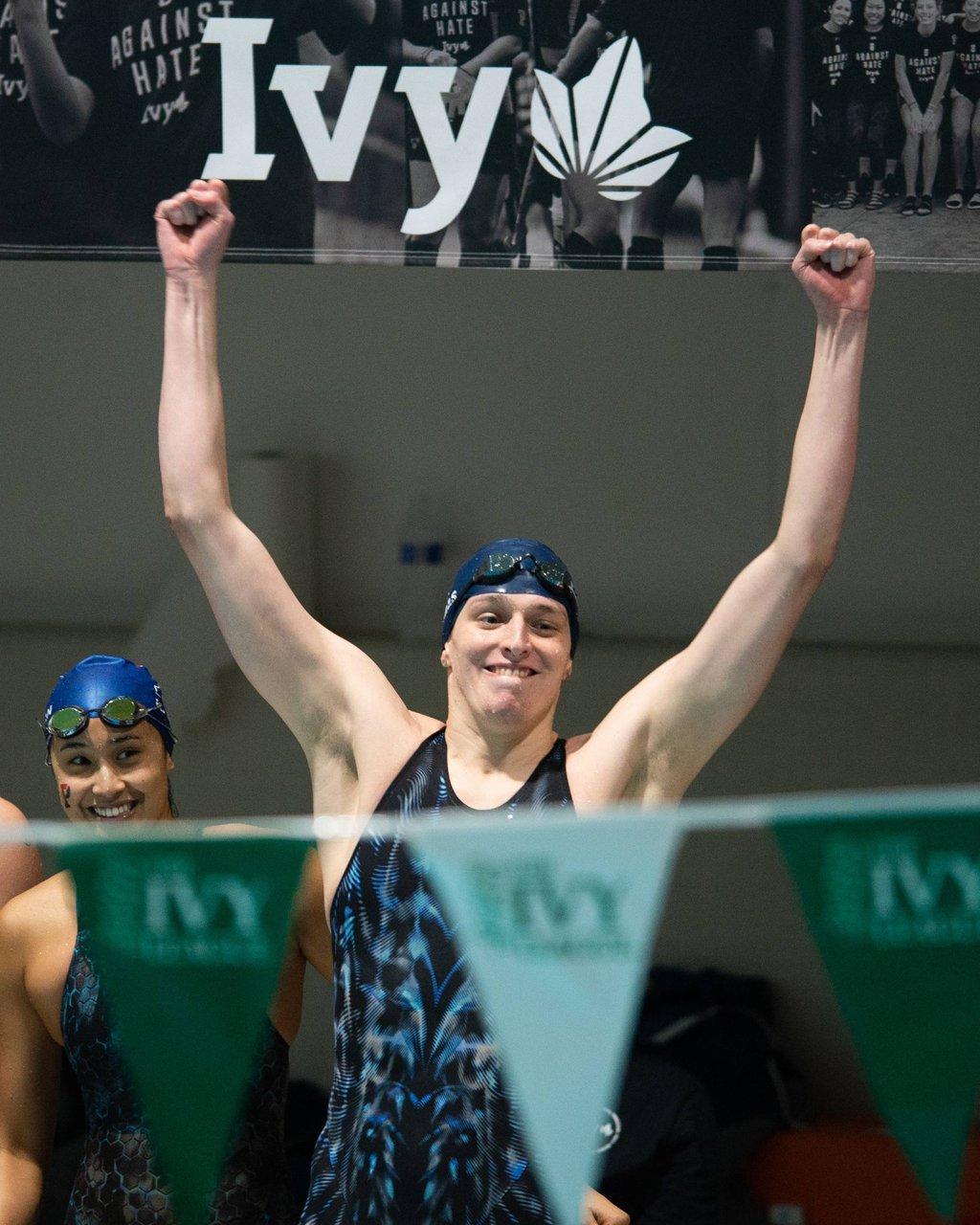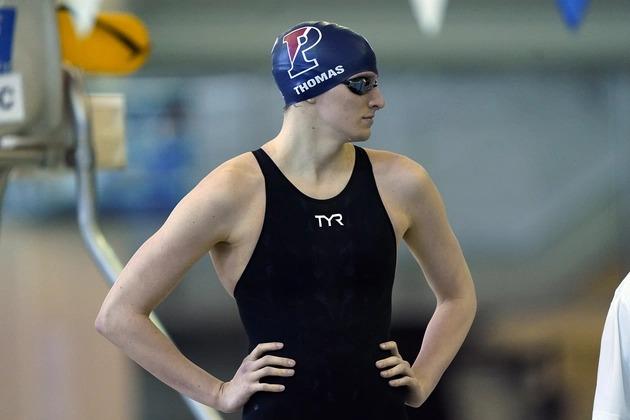Lia Thomas, the prominent transgender swimmer, recently spoke out in a candid interview with WHYY. She passionately defended her identity and participation in women’s sports. Thomas emphasized that hormone replacement therapy (HRT) has significantly altered her body, reducing muscle mass and eliminating any competitive advantage.
In the interview, Thomas addressed critics who argue against transgender women in women’s categories. She stated, “You don’t get to pick and choose when you see me as a woman.” This highlights her frustration with selective acceptance of her gender identity.
Thomas explained the effects of HRT in detail. She noted massive losses in muscle mass, strength, and endurance after 34 months of treatment. According to her, blanket statements denying her right to compete are transphobic and ignore medical realities.

However, a study from the Macdonald-Laurier Institute challenges Thomas’s claims. The Canadian think tank argues that testosterone suppression only results in a modest 5% loss in muscle and strength after 12 months. This suggests retained advantages from male puberty.
The institute’s report asserts that no medical intervention can fully eliminate biological advantages acquired during puberty. Critics use this to support policies protecting women’s sports from transgender inclusion, echoing debates in collegiate athletics.
Thomas’s interview came after the University of Pennsylvania agreed to strip her records. This followed a resolution with the Trump administration to enforce policies keeping biological males out of women’s sports programs.
In her response, Thomas did not directly address the UPenn settlement. Instead, she focused on personal experiences, including coming out as transgender in 2018 to her then-girlfriend during a pride parade event.
She recalled the milestone moment vividly. It was the first time she said, “I’m trans,” out loud. Her girlfriend’s support marked a turning point in her journey toward living authentically.
Thomas competed for UPenn’s women’s team in the 2021-22 season after transitioning from the men’s team. She achieved notable success, including an NCAA Division I national championship in the 500-yard freestyle.
Her accomplishments also included three All-America honors and being named High Point Swimmer at the Ivy League Championships. These feats sparked widespread controversy among fellow athletes and advocates.
Multiple women who competed against Thomas have voiced concerns. Riley Gaines, a former University of Kentucky swimmer, tied with Thomas at the NCAA championships and later became a vocal advocate for women’s sports rights.
Gaines filed a lawsuit against the NCAA, joined by other swimmers like Kylee Alons and Kaitlyn Wheeler. The suit partially advanced in court, highlighting ongoing legal battles over fairness.
Additionally, three former UPenn teammates—Grace Estabrook, Margot Kaczorowski, and Ellen Holmquist—sued the university and Ivy League. They claim discomfort and unfairness in sharing pools and locker rooms with Thomas.
Paula Scanlan, another ex-teammate, was the first to speak out publicly during the 2022 season. She detailed experiences that fueled debates on transgender inclusion in women’s athletics.

Monika Burzynska, assigned a locker next to Thomas, expressed initial sympathy. However, she later viewed the situation as unfair, stating Thomas seemed “deeply lost” but the competition imbalance was evident.
These accounts underscore the divide in opinions. While Thomas insists on her womanhood and HRT’s equalizing effects, opponents cite scientific evidence from sources like the Macdonald-Laurier Institute.
The institute’s doctors reportedly counter Thomas’s passionate defense directly. They present data showing retained musculoskeletal advantages, asserting that transgender women like her “remain male” in biological terms for sports.
This counterclaim intensifies the debate. Thomas’s assertion of being “100% woman” clashes with evidence suggesting incomplete mitigation of puberty-related advantages through HRT alone.
Amid the controversy, Thomas received the Voice of Inspiration Award at Rainbow Labs’ Violet Visionary Awards. Sponsored by teams like the Los Angeles Dodgers, it celebrates her advocacy for transgender rights.
The event highlights support from LGBTQ+ communities. Yet, it contrasts with backlash from women’s sports advocates who prioritize biological fairness in competitive environments.
Thomas’s story began at UPenn, where she swam for the men’s team before transitioning. Her return to women’s competition in 2022 ignited global scrutiny and policy changes.
The Trump administration’s involvement led to UPenn’s compliance, erasing Thomas’s records and apologizing to affected female athletes. This move symbolized broader efforts to protect women’s sports.
Critics argue that allowing transgender women post-puberty disadvantages cisgender competitors. The Macdonald-Laurier study supports this, noting minimal strength loss despite HRT.
Thomas counters by sharing her personal struggles with gender dysphoria. She credits HRT for enabling her to live authentically, boosting happiness and self-acceptance.
Her parents initially reacted with confusion and transphobic views from misinformation. Over time, witnessing her joy post-transition solidified their support, mirroring hoped societal shifts.
Thomas also praised allies like Schuyler Bailar, a transgender swimmer and educator. His guidance helped her navigate challenges as a visible transgender athlete.

Despite legal setbacks, including a lost challenge against World Aquatics’ ban, Thomas swims recreationally at a local YMCA. She focuses on reclaiming joy in the sport amid painful memories.
The World Aquatics policy prohibits transgender women who’ve experienced male puberty from elite women’s races. Thomas called the ruling a “gut punch,” grieving lost competitive opportunities.
This ongoing saga raises questions about inclusivity versus fairness in sports. Thomas’s defense emphasizes identity and medical transitions, while opponents highlight biological realities.
SEO-optimized discussions often search for “Lia Thomas HRT effects” or “transgender advantage in swimming.” Her case exemplifies tensions in modern athletics governance.
As debates evolve, policies like those from NCAA and Ivy League may adapt. Thomas’s voice remains a pivotal force in advocating for transgender athletes’ rights.
Ultimately, the clash between Thomas’s passionate self-defense and scientific counterclaims from institutes like Macdonald-Laurier fuels polarized views on gender in sports.
With over 800 words, this article explores the nuances of Lia Thomas’s story. It balances her perspective with opposing evidence, encouraging informed dialogue on transgender inclusion.



